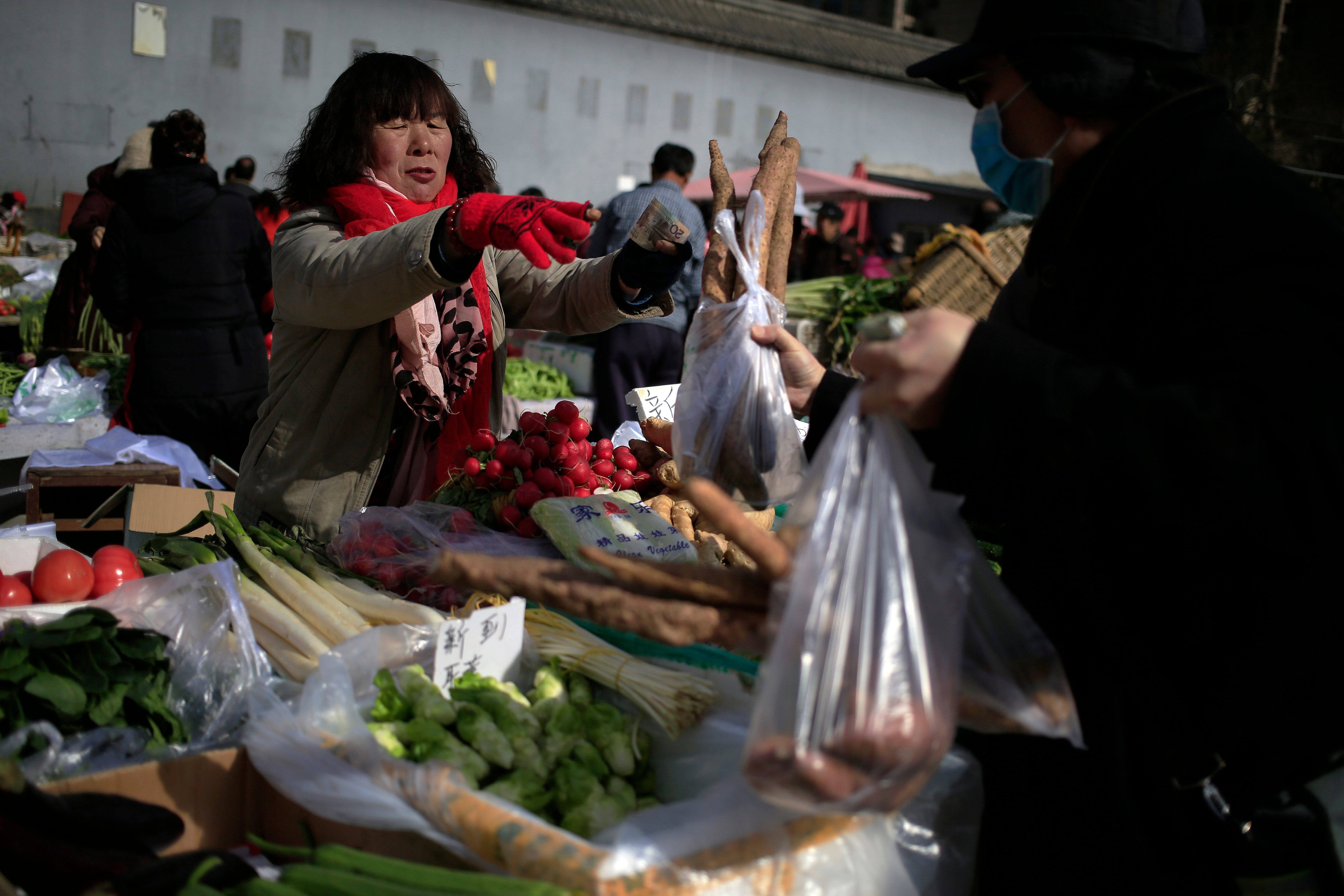SUMMARY
This is AI generated summarization, which may have errors. For context, always refer to the full article.
 With so much of Southeast Asia linked to China through trade and tourism, the latest news out of the Manila-headquartered Asian Development Bank should give many in the region good reason to pause.
With so much of Southeast Asia linked to China through trade and tourism, the latest news out of the Manila-headquartered Asian Development Bank should give many in the region good reason to pause.
The multilateral lender in its 2016 Asian Development Outlook, released this March 30, forecast China’s economic growth would continue to moderate. So too, it forecast, would the Philippines.
In its flagship annual economic report, the ADB saw China’s growth slowing to 6.5 percent this year, and 6.3 percent in 2017.
In contrast, Beijing has predicted growth of 6.5 to 7 percent this year, and an average of 6.5 percent over the five years ahead. (READ: China posts slowest quarterly growth)
The slowing growth rate has already reduced by up to 0.3 percentage points the economic outlook for developing Asian nations overall, notes the ADB, given China’s trade and supply linkages.
Philippines GDP is now forecast to grow 6 percent this year. That’s a downward revision from the ADB’s previous 6.3 percent outlook for 2016 and in contrast to the government’s official 6.8 to 7.8 percent projected growth rate.
Yet, if it was simply a slowing, but still growing, China that the economic power’s trade partners had to contend with, that would be challenge enough. Instead, in a potentially ominous new development for businesses in the region, new worries and ensuing protests have arisen over whether China’s version of “rule of law” and treatment of dissent has now extended beyond its borders.
This goes beyond ongoing projections of Chinese power into the West Philippines or South China Sea.
No longer have only Mainland Chinese citizens been caught up in China’s legal and security system. So, too, have Hong Kong citizens as well as passport holders from Sweden and the United Kingdom vanished and then reappeared over the last few months under mysterious circumstances.
The capitalist, freewheeling city-state of Hong Kong has been pretty much left on its own to run as an autonomous special administrative region of China since the British left this one-time Crown colony in 1997.
That could now be changing. As China’s GDP growth rate moderates to the slowest in a quarter century, more attention may well be being placed by authorities in China on stomping out anything that could trigger questions about their leadership and ability to run the nation.
Going missing
In a tale that reads as if from a Cold War spy thriller, Gui Minhai, a Swedish national born in China, went missing last fall from his condominium in the Thai city of Pattaya on the Gulf of Siam. Four of his colleagues also disappeared.
One, Lee Bo, vanished at year’s end from Hong Kong, the home base of their publishing company Mighty Current Media and its now closed retail arm Causeway Book Store. Mighty Current has specialized in part in publishing and marketing controversial and outright gossipy books, often highly critical of China’s communist leadership. Gui and Lee’s other three book publishing colleagues reportedly disappeared while in Mainland China.
Gui subsequently reemerged on China’s government-run state broadcaster CCTV. In a tearful broadcast confession, Gui said he had returned to China to face justice for his involvement in a 2003 fatal hit-and-run accident in the city of Ningbo. Family and friends are skeptical and wonder if the filmed statement was coerced.
And Lee reappeared back in Hong Kong at the end of March after more than two months in mainland China. According to the Washington Post, he was quoted by a Chinese website as saying he would never again sell “fabricated” books or run a bookstore again.
Why the disappearances? A leading theory focused on Mighty Current Media’s possible publication of a tell-all book on the twice-married Chinese president Xi Jinping’s alleged love affairs.
This time, as the rumors – and conspiracy theories – went, Mighty Current’s plans may well have spurred Xi to send Chinese security forces across the border into both Hong Kong and Thailand to spirit away the Swedish and British passport holders back into China against their will.
“An upsurge in cases of possible enforced disappearances in China in the context of an ongoing crackdown in dissent is deeply worrisome,” the global writers’ organization PEN International said in a statement released in London in early January.

Reason to pause
More intrigue will follow. Western media are reporting that Chinese dissidents in the United States and Europe are saying that close relatives back in China may have been detained by police, as part of an investigation into the authors of a mysterious letter that appeared on the Internet in China, calling for Xi to resign.
Steve Herman, Southeast Asia bureau chief of Voice of America and a longtime Asia reporter now resident in Bangkok, noted earlier this year on the disappearance of Gui from Pattaya, “A critical unanswered question is whether there was collusion between the Chinese government and Thai authorities. The lack of concern expressed by the ruling military junta is notable.”
Ominously, he added, “China has demonstrated that it has the long reach to apparently abduct people beyond Hong Kong, including here in Southeast Asia.
A climate of fear may well come should it ever be confirmed that Mainland Chinese security forces have abducted people from the streets of Hong Kong and Thailand. But until then, business goes on.
The tale of the missing booksellers and a seeming growing crackdown on criticism of China’s leadership by individuals at home and abroad, however, should give Southeast Asia reason to pause.
Whether in Hong Kong, Thailand or one of China’s other major Asia trading partners including the Philippines, leaders should recognize that it is a clear, and transparently enforced rule of law – not looking the other way on “enforced disappearances” – that will be essential for business confidence and economic growth in the long run.
China, too, must recognize at some point that its strength will lie ultimately in the free enterprise and free speech of its citizens. – Rappler.com
Curtis S. Chin, a former U.S. Ambassador to the Asian Development Bank, is managing director of advisory firm RiverPeak Group, LLC. Follow him on Twitter at @CurtisSChin.
Add a comment
How does this make you feel?
There are no comments yet. Add your comment to start the conversation.